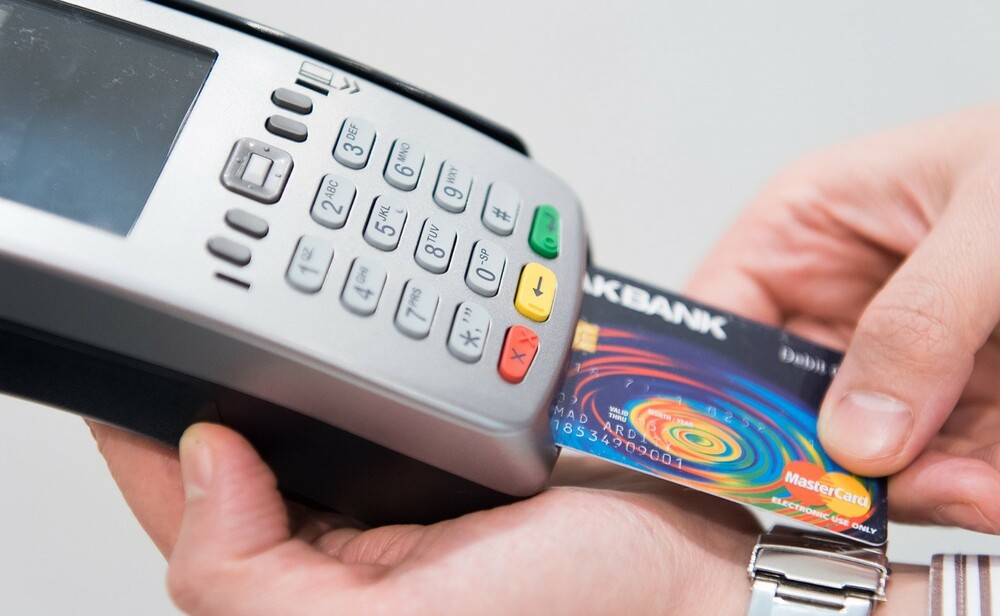What are the Different Ways to Rebuild Credit?
To rebuild your credit, you need to understand and address the many issues that affect your credit, from the score to interest rate levels. By understanding your credit score and how it is calculated, you can work with your financial institution to develop a plan that will help you repair your credit. This article will help you learn how to rebuild your credit. It outlines a four-step strategy, in addition to possible choices and different ways to rebuild credit.

Step 1: Establish good credit habits
So, what does it take to build credit? According to the National Foundation for Credit Counseling, it’s three things:
- Buy only what you can afford
- Pay on time and in full
- Get a secured loan
With a secured loan, you can borrow money against a piece of property. Secured loans typically require a cosigner, usually a close family member. You should discuss the pros and cons of your options before you take any loan, but a cosigner can be the right choice if you cannot afford the loan entirely.
Step 2: Set limits on new credit lines
Adding a new line of credit or “new credit” to your credit report increases your credit utilization ratio. The higher your credit utilization ratio, the worse your credit score. You should always carefully consider your new credit line before opening the door to debt.
When you decide to open up a new line of credit, determine what you will pay in interest and payments. If you are paying 15% or more in interest, you should wait until your score is high enough to afford the new line of credit. Once your score is high, you can consider opening new credit lines.
Step 3: Monitor your credit and pay what you owe on time.
Here’s a thought: You pay off your credit card each month. Why not also track your credit cards? A credit card statement is available every month. If you can’t pay it off in full each month, you should make sure you make the minimum payment on all your cards. Paying the minimum may not be the ideal strategy, but the alternative, racking up debt, is even worse.
You’ll be able to quickly detect if you need to make any adjustments to your monthly budget. Don’t stop paying altogether until you feel confident that you’re in a safe spot.
Step 4: Learn how to get out of debt
Learn how to improve your credit by taking advantage of debt management programs. Under certain circumstances, your credit card companies may let you accelerate your payments on any cards with a lower limit to a higher limit or allow you to transfer the balance to a 0% balance transfer credit card.
If you have a more severe credit problem, such as delinquent accounts, try to get the balances written off by a bankruptcy or credit rehabilitation program.
Here are the ways to rebuild credit:
1. Pay your bills on time
Make sure your credit card and credit card bills are paid on time each month. Failure to make the payments or pay at all could hurt your credit score. This goes for any bill you pay on time. Even if you are late, it can hurt your credit score if you have been in good standing.
2. Watch your credit utilization
This is the percentage of available credit you use compared with your credit limit. Credit utilization increases with debt and increases when you owe money. Check if your credit limit on any credit card is the total amount you are using or close to it. If you’re close, pay down your balance to the minimum. If you’re using more than you can pay, consider reducing your balance or applying for a 0% APR balance transfer credit card or a personal loan.
3. Pay your balances in full
This is the classic payment strategy, but it is the most important. It isn’t easy to improve your credit score without paying your bills each month. You will naturally have difficulty if you’re still paying the same amount month-to-month, especially if you’re also paying other loans or debts. If you have balances on your credit cards, pay them off.
4. Reduce your revolving debt
Equipment loans, such as auto loans, home equity loans and credit cards, are considered revolving debt because the amount you owe is available to be charged against your credit accounts. Be sure always to pay off your revolving debt and not incur any new debt, such as financing a car. Your credit score can suffer for at least two years if you have a high debt-to-income ratio.
5. Balance transfers
A loan application is a straightforward form you can fill out when you want to obtain a loan. You must first prove that you have the means to pay, which usually means showing a clear record of making the payments on previous credit cards. You can then apply for a new credit card. The balance transfer is applied to the new account, which provides a line of credit to keep you borrowing and paying down your debt. If you cannot pay the balance down, you will start accruing interest and will be more likely to end up paying more than your original card balance.
6. Cancel unused credit cards
One strategy to jump-start improving your credit score is to cancel unused credit cards. That means no more automatic payments on the card and no more late fees or other charges for your accounts. The accounts with the remaining balances will show up as 0 balance on your credit reports, which will help improve your score.
7. Review your credit report
Once you have opened up a new credit card, it’s best to check your credit reports to see what is going on with your credit. This is especially important if you have gotten late fees or other charges on an account you no longer use. Check for any accounts that are not included on your credit reports, and if it looks like there are missing data, dispute the inaccurate information.
8. Don’t carry a balance
Many people have high balances on their credit cards, so paying them off each month is essential. If you pay off the balance, you are already getting a better payment experience. Avoid using more than 30 percent of your available credit, even if you can afford to pay the balance every month.
Some people mistake adding a credit card account to their credit card shopping carts, only to discover that the cost of the purchase is more than the credit limit. Instead of paying off the credit card at the end of the month, they will continue adding more credit cards to their shopping carts. Most people will end up paying for it later.
9. If you have good credit, don’t change your score to boost your score
What you decide to do with your credit card statements and accounts will impact your credit score, so you don’t want to make any changes just because your credit report shows higher credit scores. This is not to say that you can’t make changes; it just needs to be a minor tweak, like sending an email message from one card to another, which will not negatively impact your credit.
10. Maintain your credit utilization
Make sure you are using 30 percent or less of your available credit. You also want to ensure that your credit utilization ratio, the total amount of credit you have available for borrowing, is in line with your credit limits. Your credit utilization ratio is a good indicator of your creditworthiness. If you have a high credit utilization ratio, you may be able to improve your score by lowering your credit utilization ratio.
11. Pay off your credit cards in full
You would never have a credit card balance in a perfect world and pay it off each month. However, life is not perfect. The reality is that most people make it a practice to carry balances, mainly if they are not using the card as frequently as they should. A balance may look like a good deal if you don’t have a strong credit score, but it will keep you from improving your credit score. It’s better to ultimately pay off your credit cards to start with and then pay the minimum payment each month.
12. Don’t let credit inquiries affect your score
Ensure you have a credit freeze or fraud alert put on your credit report if you haven’t already done so. Your credit report will not be accessed without your permission, and your credit card information will not be available to potential creditors.
13. Pay off the debt you are behind on
If you have high-interest credit card debt, don’t rush to pay it off. Wait a while and pay it off only if you can afford it. If you have recently purchased a new home, refinancing it or taking on a smaller mortgage that allows you to pay off the mortgage before it is due may be the right choice.
14. Refinance your mortgage
Another way to improve your credit score is to consider refinancing your mortgage. This is a big decision you should only make if it is beneficial to you. When you refinance, the bank sells your current mortgage and replaces it with a new mortgage for a lower interest rate, which results in a lower monthly payment. As long as you can afford the new mortgage, refinancing can boost your credit score. If you are self-employed, consider that refinances typically do not help you in the business credit area.
15. Don’t max out your credit cards
Never charge more than you can pay off when the bill is due. To have a better credit score, you should only charge what you can pay off when the bill is due every month. Your credit score will improve if you avoid paying off your entire balance on your credit card each month. If you can manage it, but one of your credit cards on a monthly transfer so that you don’t have a balance that will hurt your credit score. If you pay off your balance in full, your credit score will improve, and eventually, your card issuer will be glad to replace your card with a new card that includes a lower interest rate.
16. Be sure your contact information is current
If you have lost touch with someone you owe money to, contact them and verify your information to ensure everything is still correct. Changing contact information often causes the problem to get worse. Make sure you always keep a current phone number, address and email address. A phone number with a familiar area code helps you stand out from other credit applicants. You can change the area code from the one on your existing phone number, but make sure it is still in a safe area code.
17. Don’t apply for credit in foreign countries
This is pretty easy to get away with but not something that is recommended. If you are not in the United States, applying for credit in other countries is risky because a credit bureau may think you are living overseas and give you a higher credit score than you deserve. There is a good chance that the credit bureau will correct the error, but they can usually charge a fee. If you are worried about applying for credit in a foreign country, call your credit bureau and check to make sure you are in the correct place.
Finally, pay down your credit card balances at least every 12 months. For some people, this may seem impossible, but it is easier than you think. Set up automatic payments, so you will not miss a payment and begin adding the cards to your shopping carts. You’ll feel better about your credit score and credit cards if you can get them paid off every 12 months.
Must Read: What Factors Affect Your Credit Score?





